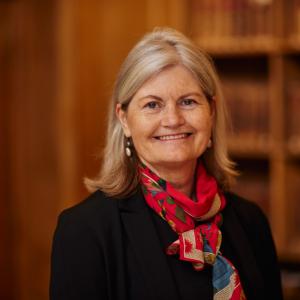The Hamlyn Lectures 2022: Courts and the Body Politic
Notes & Changes
A recording of this event is available here: https://www.youtube.com/watch?v=SRMYdi8ruC0&list=PLwj4-Geqxth_ww5LTXKFgsc0Vj0VK-CeK&index=5
The Hamlyn Lectures 2022 will examine the role of courts in the body politic. There are three lectures. The first will be delivered in Belfast on 2nd November, the second in Glasgow on 9th November and the third in Oxford on 16th November. All lectures will be either recorded or live-streamed. The first lecture explores the expanding role of courts across the world in the 20th and 21st centuries, explaining that the expansion has occurred in tandem with the spread of written constitutions. Responses to this expansion are often binary, with some enthusiastically embracing the role of courts as guarantors of democracy and others deploring it, but the lecture argues that these responses often obstruct our understanding of the role that courts can and do play in different constitutional settings. The second lecture explores the relationship between courts and the executive branch of government, noting that holding a powerful executive to account is often a perilous exercise for courts, although it is one the rule of law requires them to perform. The lecture argues that the relationship between courts and the executive is challenging not only because of the power of the executive, but also because of the different and, at times, incompatible ways in which the executive and courts work. The third lecture turns to fundamental rights and the appropriate role of courts and legislatures in their protection. It starts with the drafting of the Universal Declaration of Human Rights in the aftermath of the Second World War, which led to the adoption of a range of international treaties imposing obligations upon states to protect human rights, including the European Convention of Human Rights in 1950. The lecture examines the key disagreement, particularly in the Anglo-American world, about how human rights should best be protected in democracies.

Speaker
Professor Kate O’Regan is the inaugural Director of the Bonavero Institute of Human Rights and a former judge of the South African Constitutional Court (1994–2009). In the mid-1980s she practiced as a lawyer in Johannesburg in a variety of fields, but especially labour law and land law, representing many of the emerging trade unions and their members, as well as communities threatened with eviction under apartheid land laws. In 1990, she joined the Faculty of Law at the University of Cape Town where she taught a range of courses including race, gender and the law, labour law, civil procedure and evidence. Since her fifteen-year term at the South African Constitutional Court ended in 2009, she has amongst other things served as an ad hoc judge of the Supreme Court of Namibia (2010–2016), Chairperson of the Khayelitsha Commission of Inquiry into allegations of police inefficiency and a breakdown in trust between the police and the community of Khayelitsha (2012–2014), and as a member of the boards or advisory bodies of many NGOs working in the fields of democracy, the rule of law, human rights and equality.
Chair
Helen Mountfield KC, Principle of Mansfield College, Oxford


